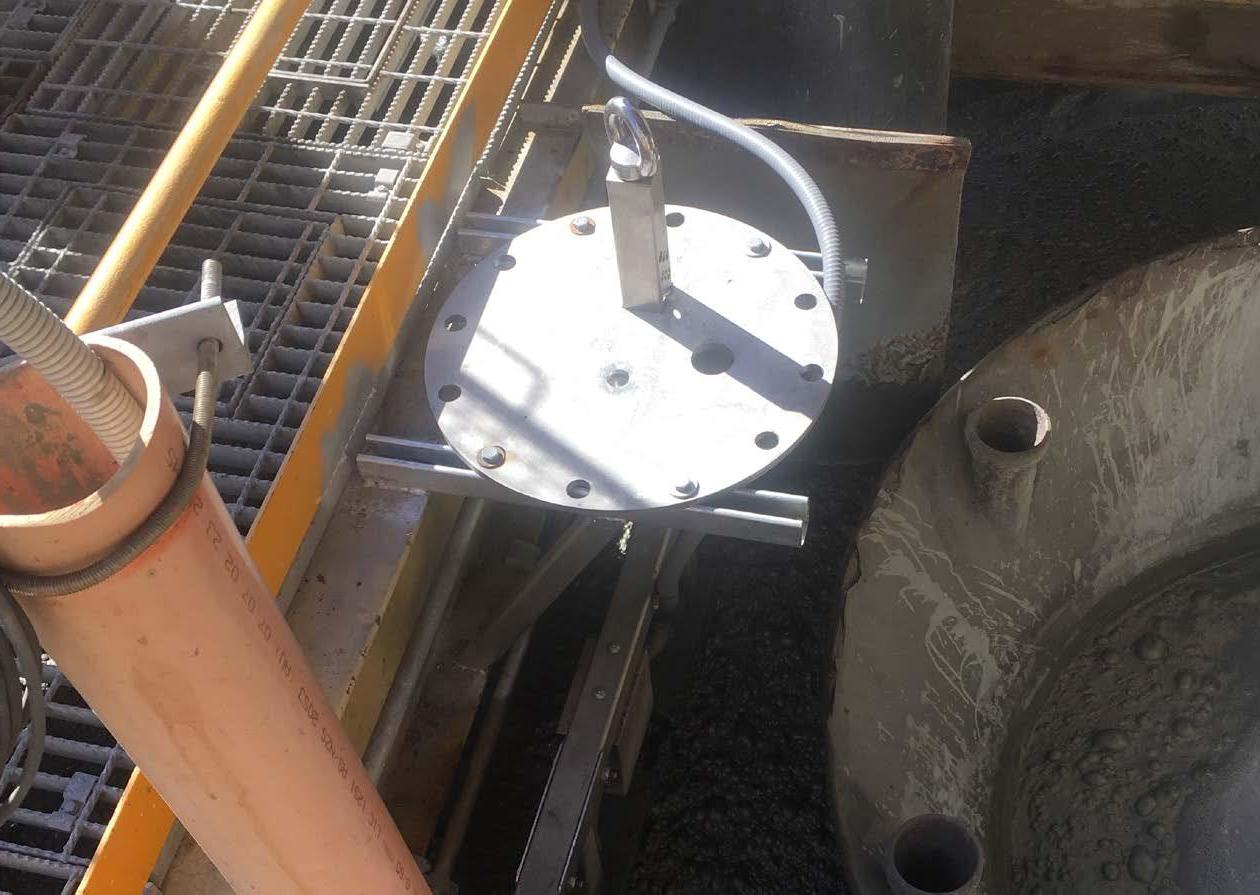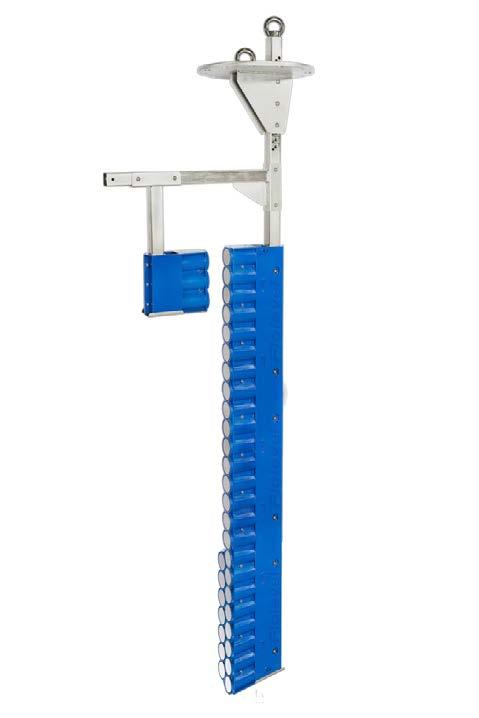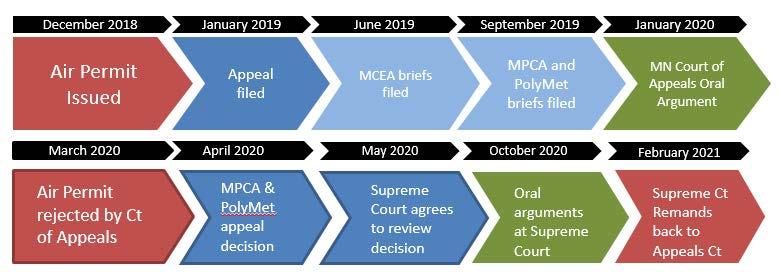
3 minute read
Polymet's Air Permits Receives Mixed Opinion by Minnesota Supreme Court
On the one side, on Wednesday, the Minnesota Supreme Court overturned the ruling of a lower court that would have sent the air permits from PolyMet back to state regulators for further review.
But on the other hand, it ordered a lower court to investigate whether PolyMet, which is trying to open the first coppernickel mine in the state, misled the re-establishment.
In Wednesday's Supreme Court opinion, written by Justice Margaret Chutich, both opponents and supporters of PolyMet claimed victory.
Central to the case is whether a PolyMet study published in March 2018, 10 days after the public comment period of the air permit ended, details the company's plans to recover 118,000 tonnes of ore per day instead of 32,000 tonnes per day, the sum stated in permit applications by the company.
The air permits issued in December 2018 by the Minnesota Pollution Control Agency allow the company to release 250 tonnes of controlled pollutants per year, but opponents argue that if it were to recover more ore, the company would surpass that cap and call the permits an example of "sham permitting."
In reversing the March 2020 decision of the Minnesota Court of Appeals, Chutich wrote that the MPCA did not need to go back and consider the scope for sham authorization as ordered by the lower court. During the permitting process, Chutich wrote that the MPCA "was under no federal obligation to investigate sham permitting" and that when it sent the permits back to the MPCA in March, the lower court had "relied on an erroneous interpretation of federal law".
In separate statements, PolyMet President and CEO Jon Cherry said the reversal on Wednesday "is another big win and a major step forward in the defense of our air permit," while an MPCA spokesperson stated it "appreciates the court’s thorough review of the air permitting process for the PolyMet facility."
AMERICAS
claims back to Court of Appeals to review whether PolyMet's report for potential larger mine "undermined" the MPCA's conclusion that the company "will … comply with all conditions of the permit" and if the company "failed to disclose fully all facts relevant" and “knowingly submitted false or misleading information to the (MPCA).”
“Today’s ruling underscores that the entire process by which PolyMet obtained its permits in 2018 may have been deceptive and allows us to make this case to the Minnesota Court of Appeals,” said Kathryn Hoffman, CEO of the Minnesota Center for Environmental Advocacy, in a news
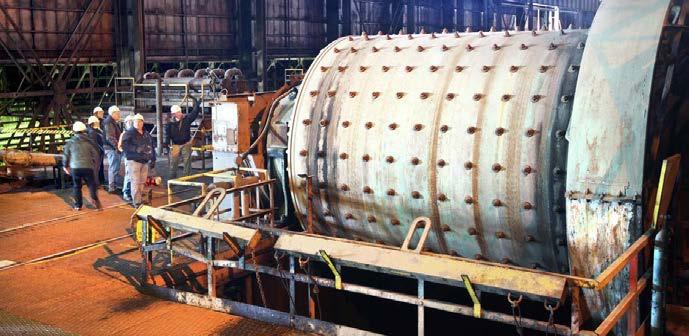
A rod mill is seen at the PolyMet processing plant near Hoyt Lakes, which will be used to crush metal-bearing rock from half-sized pieces to small pieces of gravel as part of the process of extracting copper, nickel and other metals from the mine. (Bob King / 2013 file / News Tribune)
In separate statements, PolyMet President and CEO Jon Cherry said the reversal on Wednesday "is another big win and a major step forward in the defense of our air permit," while an MPCA spokesperson stated it "appreciates the court’s thorough review of the air permitting process for the PolyMet facility."
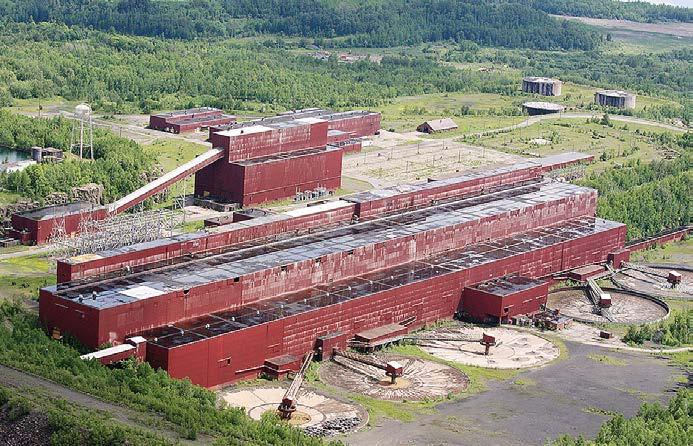
release on Wednesday. Near Hoyt Lakes and Babbitt, PolyMet plans to develop Minnesota's first copper-nickel mine.
While proponents claim that it will work safely and bring much-needed jobs to the area, critics, including environmental organisations and Lake Superior Chippewa's Fond du Lac Band, say that the project will risk sending toxic waste into the Watershed St. Louis River, which empties into Lake Superior.
The MPCA has defended the air permit, stating it claims that at the 32,000-tonper-day limit, the company will function viably. It also said the study from PolyMet was "entirely speculative."
A PolyMet attorney said in oral arguments in November that the publication of the study shortly after the comment period ended was "just a coincidence”.
The announcement on Wednesday meant the air permits were no longer on hold. After the Court of Appeals decision in March 2020, the permits have been on hold, or have remained, or paused. Amid pending court proceedings, a variety of other PolyMet permits remain on hold.
